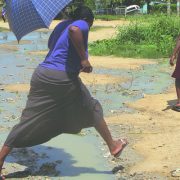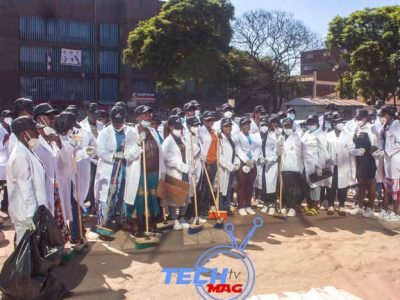*Unlocking Zimbabwe’s Youth Dividend: A Catalyst for Economic Transformation*
Africa is experiencing an unprecedented demographic shift, with over 60% of its population under the age of 25 —the youngest and fastest-growing population globally. This so-called “youth dividend” presents both an opportunity and a challenge: an opportunity for economic transformation if harnessed effectively and a challenge if neglected.
Zimbabwe, like many African nations, stands at a pivotal moment. With aspirations of becoming a middle-income economy by 2030, the country must position its youth at the center of its economic development agenda. The upcoming Zimbabwe International Youth Trade Fair & Conference (ZITYFC) 2025 is set to shine a spotlight on this critical issue, bringing together young entrepreneurs, investors, and global thought leaders, including Dr. Arikana Chihombori-Quao, a renowned advocate for African unity and economic independence.
Across the continent, youth-led businesses are redefining industries. According to the African Development Bank (AfDB), small and medium enterprises (SMEs) account for over 90% of all businesses and contribute approximately 60% to employment in Africa. In Zimbabwe, where youth unemployment remains a pressing concern, empowering young entrepreneurs through access to capital, mentorship, and markets will be a game-changer for economic growth.
“The youth dividend is Africa’s greatest asset. If we invest in our young people today—through skills development, business incubation, and access to finance—Zimbabwe will accelerate its journey toward becoming a middle-income economy by 2030,” says Vimbai Butawu, leader of MACYDO LEAD, the organizers of ZITYFC.
Investment in youth-led enterprises is proving to be a high-return strategy. According to the International Labour Organization (ILO), for every dollar invested in youth entrepreneurship, an average of $3.50 is generated in economic returns. Zimbabwe’s informal sector already contributes nearly 60% to GDP, with young people driving innovation in agritech, fintech, and creative industries.
However, barriers such as limited funding, weak policy frameworks, and lack of market access continue to hinder youth entrepreneurs from scaling their businesses. Events like ZITYFC 2025 serve as catalysts for partnerships, linking young entrepreneurs with local and international investors who see the potential in Africa’s next generation of business leaders.
ZITYFC 2025 is not just a conference—it is a launchpad for Zimbabwe’s next wave of business innovators. With Dr. Arikana Chihombori-Quao as keynote speaker, the event will emphasize economic self-sufficiency, Pan-African trade, and the role of young people in driving Africa’s industrialization agenda.
“We are honored to have Dr. Chihombori-Quao at ZITYFC 2025. Her passion for Africa’s economic liberation and youth empowerment aligns with our vision of equipping young people with the tools to lead,” adds Butawu.
As Zimbabwe looks toward 2030, the question is no longer if young people will shape the future, but rather how fast the country can harness their potential. With the right investments, policies, and platforms like ZITYFC 2025, Zimbabwe’s youth dividend could be the driving force behind a thriving, globally competitive economy.
Now is the time for investors, policymakers, and business leaders to align their strategies with Zimbabwe’s youth agenda. The road to Vision 2030 will be paved by innovation, entrepreneurship, and an empowered youth workforce. As ZITYFC 2025 approaches, the message is clear: Africa’s future is young, and Zimbabwe is ready to lead the charge.










Comments